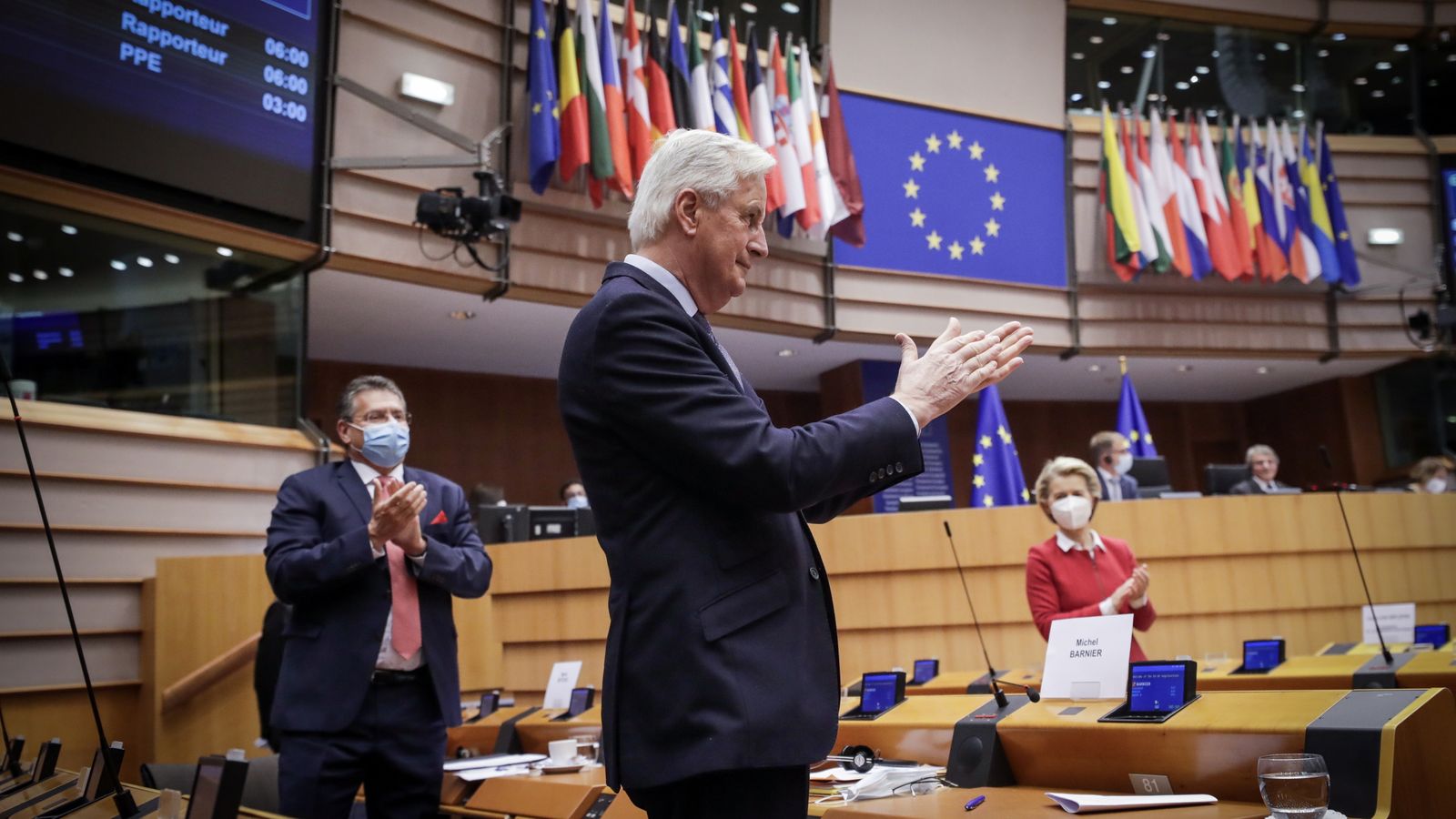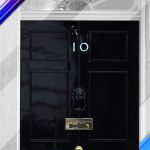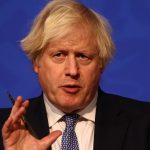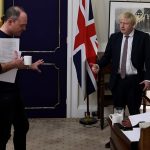Nearly four months after the Brexit deal came into effect, the European Parliament gets the final word.
It may be a rather symbolic word, which makes next to no difference in the real world, but it will mark the end of a road.
For when the parliament’s vote is announced to the world at breakfast time on Wednesday then we will, finally, be able to say that the deal is done. The final asterisk will be removed from the ledger.
Please use Chrome browser for a more accessible video player
You could be excused for thinking that it was all done and dusted four months ago, and you’d be partly right. But, behind the scenes, the Brexit deal has still been open to debate.
At the heart of all this is the anger that the European Parliament felt at the end of 2020 when it complained about being marginalised by the Brexit negotiating teams.
In fact, there is absolutely no doubt that it was – very clearly – marginalised. And what’s more, aware that the deadline for agreeing a deal had been pushed further and further back, the MEPs had, ruefully, to accept their plight.
The simple truth was that there was absolutely no way that the Parliament could scrutinise and ratify the Brexit agreement between Christmas Eve, when it was agreed, and New Year’s Day, when it had to come into effect.
The only option left open to the European Parliament at that point was to delay giving its approval, allowing the various politicians and committees to spend weeks and months pondering whether it really was in Europe’s best interests.
And the reality of all that, as one senior figure predicted to me back in December, was there was absolutely no way that the Parliament could countenance toppling over a deal of this magnitude.
Brexit is a fact of life for Europe, as well as the United Kingdom now, and the more time that has passed, the smaller the chance that MEPs would oppose the deal that governs it.
It was pondered, chewed over, discussed and analysed. But when it came to the committee stage, it was approved by a colossal majority.
This week, the debate about the agreement was simply a long series of quite short speeches, largely framed around a few familiar thoughts – regret that the UK left the European Union; determination to forge a new partnership; pride that the deal, according to its supporters, defends European rights; support for the EU negotiating team (Michel Barnier got a standing ovation) and also an insistence that if there was a breach of the agreement, then Europe would seek redress.
This was a warning, not least about the Northern Ireland protocol, which is already seen as a litmus test of this new relationship. But it was also meant to be a power-play – a warning that Europe’s trust in the UK sits at a low point. The feeling, of course, may well be mutual.
Tomorrow, barring the most extraordinary political surprise imaginable, parliament will turn out to have endorsed the deal, not least so the whole of the EU can get back to concentrating on other things.
The ravages of coronavirus are now seen as a good deal more important than Brexit.
But make no mistake that the UK’s decision to leave the club still reverberates around Brussels.
People still wonder about the reasons behind the decision, about the lessons that should be learnt, and about the gentle fear that another country could, one day, decide to follow suit.
In the meantime, just about everyone agrees that the challenge now is to forge a new relationship. Europe can no more ignore the UK than vice versa and the need to grow a fresh relationship will take a while.
The parliament’s ratification will mark a sort of full stop; the closure of a chapter. It is, perhaps, the end of the beginning of Brexit. The question now is what happens next.






















